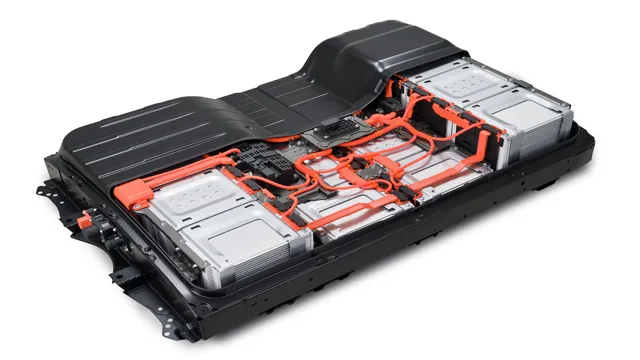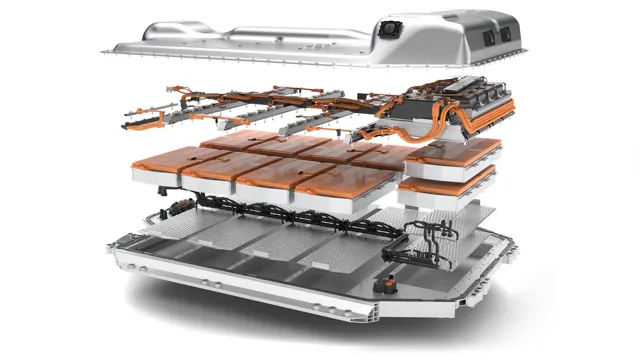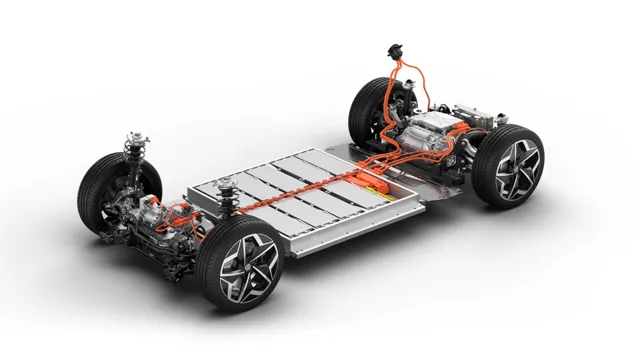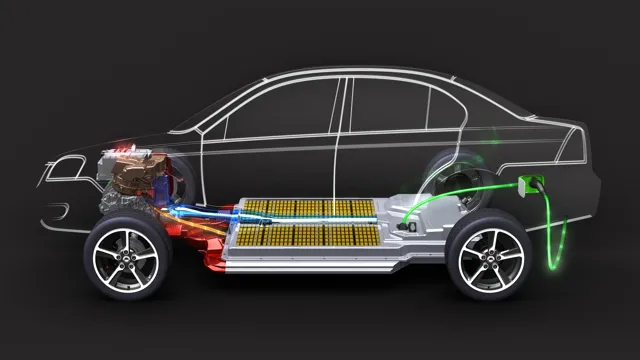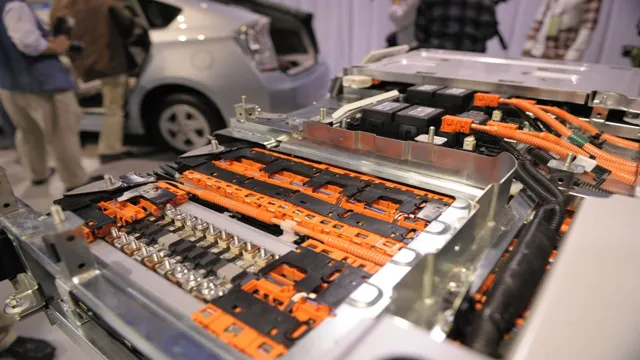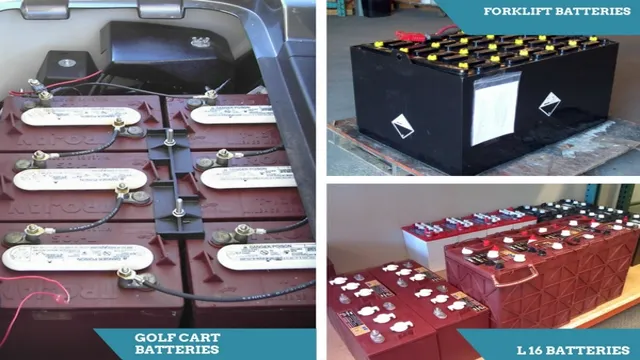The Shocking Truth: Unveiling the Current Cost of an Electric Car Battery in 2021
Electric car battery costs have always been a contentious issue- while electric vehicles (EVs) are deemed cost-efficient and environmentally friendly, the battery costs can often be pricey. However, the trend seems to be changing in the battery industry. Over the past decade, the cost of electric car batteries has steadily dropped, and experts predict that it will continue to do so in the coming years.
With automakers like Tesla and Rivian working to reduce battery prices, the day when electric cars become more affordable than their gasoline-powered counterparts might not be too far away. But why has it taken so long, and what’s causing the shift in the industry? Let’s dive into the subject matter and explore what’s influencing this change in the electric car battery industry.
Introduction
The current cost of a car electric battery can be a major determinant when considering the purchase of an electric car. The price of electric vehicle batteries has been decreasing over the years, making them more appealing to consumers. However, the cost still varies depending on the battery’s size, capacity, technology, and brand.
On average, a 60 kWh battery pack can range from $6,000 to $12,000, while a 100 kWh battery pack can cost between $10,000 and $15,000. It’s important to note that battery replacement costs can be a significant expense for electric vehicle owners, although they typically occur years down the road. Nonetheless, the cost of electric vehicle batteries is projected to continue decreasing over time, making electric cars more affordable and environmentally friendly in the long run.
As technology improves, the cost may drop even further, making electric cars more accessible to the masses without breaking the bank.
What are electric car batteries?
Electric car batteries are a vital component of electric vehicles that store the electricity required to power the vehicle. They are rechargeable batteries that use chemical reactions to produce electricity. These batteries are typically made up of several battery cells or modules, which are connected together to form a single battery pack.
The battery pack is the largest and most expensive component of an electric car, and it can determine the car’s range and performance. Electric car batteries come in different sizes and configurations depending on the car’s make and model. They use various chemistries, including lithium-ion, nickel-metal hydride, and more.
Lithium-ion batteries are the most commonly used batteries in electric cars due to their high energy density, long life, and low maintenance requirements. Overall, electric car batteries are crucial for the growth and sustainability of electric mobility, as they determine the vehicle’s driving range and performance.
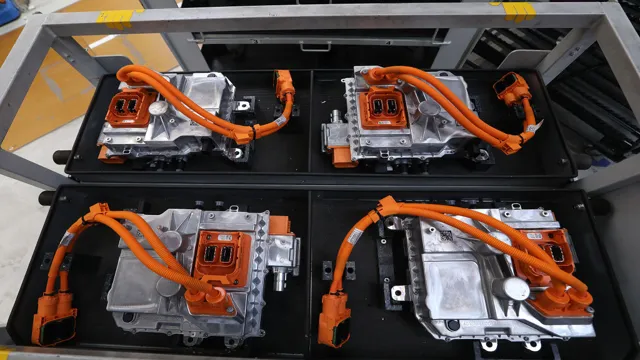
Current Prices
The current cost of an electric car battery greatly depends on the type and size of the battery, as well as the manufacturer. On average, the cost of an electric car battery ranges between $5,500 and $15,000. However, prices are decreasing as battery technology continues to advance.
For example, Tesla’s Model 3 battery costs around $7,000 but they are planning to reduce the cost to $5,000 by 202 Other manufacturers are also investing in research and development to bring down battery costs. One thing to note is that the upfront cost of an electric car may be higher than a traditional gasoline car, but the savings on fuel and maintenance costs over the lifetime of the vehicle tend to make up for the initial investment.
With current incentives, tax credits, and lower emissions, the cost of an electric car battery is looking increasingly attractive for consumers who want to save money in the long run while also being environmentally conscious.
Average cost of an electric car battery
Electric car battery prices have been falling steadily in recent years due to advancements in technology and economies of scale. Currently, the average cost of an electric car battery is around $137 per kilowatt-hour (kWh). This represents a significant drop from just a few years ago when prices were closer to $400 per kWh.
The main factor driving down costs is the increased production of electric vehicles, which has led to more competition among battery manufacturers. Additionally, improvements in battery chemistry and manufacturing processes have also contributed to lower prices. As a result, electric cars are becoming more affordable and accessible to a wider range of consumers.
Going forward, analysts predict that battery prices will continue to drop, making electric cars even more competitive with traditional gasoline-powered vehicles.
Factors that influence battery costs
Battery costs are influenced by a variety of factors, including the current prices of raw materials used in their production. One major cost driver is the price of lithium, a key component in many types of batteries. In recent years, the demand for lithium has driven its price up considerably, causing a ripple effect on battery costs.
Another factor is the cost of manufacturing and assembly, which can vary widely depending on factors such as labor costs and production technology. Additionally, research and development costs associated with creating new, more efficient batteries can drive up costs in the short term. Overall, the current prices of raw materials and production expenses are a major consideration for battery manufacturers and end-users, and can greatly impact the affordability and availability of batteries for a wide range of applications.
Comparisons with Gasoline Engines
When comparing electric cars to gasoline cars, one of the major factors to consider is the cost of the car battery. Currently, the cost of a car electric battery is higher than that of a gasoline engine, but this is likely to change as technology advances and production processes become more efficient. Despite this initial higher cost, electric cars have several advantages over gasoline cars.
For example, they are more environmentally friendly and have lower operating costs due to the cheaper price of electricity compared to gasoline. Additionally, incentives and tax breaks for electric cars offered by some governments can offset some of the initial higher costs. As the demand for electric cars continues to grow, it is expected that the cost of their batteries will decrease, making them more accessible to the masses.
Electric car battery cost vs. gasoline engines
When it comes to comparing the cost of electric car batteries with gasoline engines, there are a lot of factors to consider. One of the most significant differences is the upfront cost. Electric car batteries can be expensive, but they are becoming more affordable every year.
Gasoline engines, on the other hand, are relatively cheap upfront but require regular maintenance and fuel costs, which adds up over time. In terms of operation costs, electric cars are cheaper to run and maintain than gasoline engines. They don’t require oil changes, and the cost of electricity is often lower than gasoline.
Additionally, electric cars can travel further on a single charge than they could just a few years ago. Overall, while electric car batteries may have a higher upfront cost, they are often a more cost-effective choice in the long term.
Cost of battery replacement vs. cost of fuel
When comparing the cost of battery replacement in electric vehicles versus the cost of fuel in gasoline engines, it’s important to consider several factors. While electric vehicles may require a battery replacement after several years of use, the cost of this replacement can range from $3,000 to $7,000 depending on the make and model of the car. However, this cost is spread out over several years and can be offset by the savings in fuel costs.
In comparison, the cost of fuel for gasoline engines can add up quickly, especially as gas prices fluctuate. Plus, the maintenance costs for gasoline engines can also be significant over the lifetime of the vehicle. When considering the overall cost of ownership, electric vehicles can actually be more cost-effective in the long run, especially as battery technology continues to improve.
So, while the initial cost of battery replacement may seem daunting, it’s important to consider the bigger picture and the potential savings over time.
Future Trends
The current cost of an electric car battery has been a topic of interest in the automotive industry. As more people are considering electric cars than ever before, the cost of batteries is a major determining factor for many. Currently, the cost of a car electric battery varies depending on the type of vehicle and battery technology.
On average, it ranges from $5,500 to $10,000, making up a significant portion of the overall cost of an electric car. However, the good news is that the cost of batteries is expected to decrease rapidly in the near future, driven by advancements in technology and economies of scale. Experts predict that by 2025, the cost of batteries will drop by nearly 60%, making electric cars much more affordable and accessible to the masses.
As a result, we can expect to see more electric cars on the roads, and a brighter future for our planet.
Expected decrease in electric car battery costs
The expected decrease in electric car battery costs is an exciting trend that’s set to revolutionize the automotive industry. According to experts, this reduction in battery costs will make electric vehicles more affordable and accessible to consumers. It’s predicted that the cost of EV batteries will continue to decrease in the years to come, driven by advancements in technology and production processes.
For instance, with the increasing adoption of renewable energy sources and the evolution of battery chemistry, we can expect to see a significant drop in the cost of EV batteries. This decrease in the cost of EV batteries will have a cascading effect on other aspects of electric car manufacturing, such as electric motors and power electronics. We can expect to see an overall reduction in production costs, making electric vehicles affordable for the average consumer.
Not only that, but the decrease in battery costs will also mean extended range for EVs, improved performance, and faster charging times. With the expected decrease in electric car battery costs, we can expect to see a shift in the automotive industry towards electric vehicles. This will have positive implications for the environment, with reduced greenhouse gas emissions and better air quality.
It’s exciting to think about the possibilities that lie ahead as the cost of electric vehicle batteries continue to decrease. In conclusion, the future of the automotive industry looks bright, with the expected decrease in electric car battery costs leading the way.
Innovations that may affect battery costs
Battery costs have long been a significant concern for many industries reliant on energy storage systems. But the future seems to hold promise, with the emergence of innovations that could affect battery costs positively. Among the most notable trends is the use of solid-state batteries.
Unlike traditional batteries, they do not rely on a liquid electrolyte, which can cost a lot to produce. Additionally, solid-state batteries are thinner and smaller than traditional batteries, with a higher energy density. Furthermore, advancements in battery recycling technologies can reduce waste and manufacturing costs.
Additionally, electric vehicle manufacturers aim to reduce battery usage costs by exploring alternative battery types and exploring renewable energy solutions. With these trends in place, we can expect that battery storage costs will continue to decrease, enabling more widespread adoption of renewable energy in various industries.
Conclusion
In conclusion, the current cost of a car electric battery can shock and surprise even the savviest of car buyers. Some may find themselves in a state of electric shock when they witness the high price tag, but let’s not forget that investing in an electric car battery can also provide long-term energy savings and a greener future for the environment. So, while it may be a shocking expense upfront, it’s a wise choice for those looking to drive towards a sustainable future.
“
FAQs
What is the current cost of an electric car battery?
The current cost of an electric car battery depends on the make and model of the car. On average, the cost ranges from $5,500 to $7,000.
How long does an electric car battery last?
The lifespan of an electric car battery varies depending on usage and driving conditions. Most electric car batteries are designed to last up to 8-10 years or 100,000-150,000 miles.
Can you replace an electric car battery?
Yes, electric car batteries can be replaced if they are no longer functioning properly. It is recommended to have a professional technician replace the battery.
Are there government incentives for purchasing an electric car battery?
Yes, there are government incentives available for purchasing an electric car battery. These incentives vary by state and country and can include tax credits, rebates, and grants. It is recommended to research available incentives before making a purchase.
